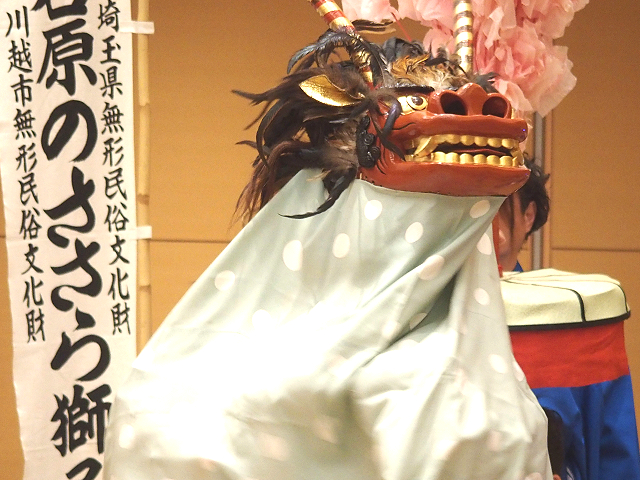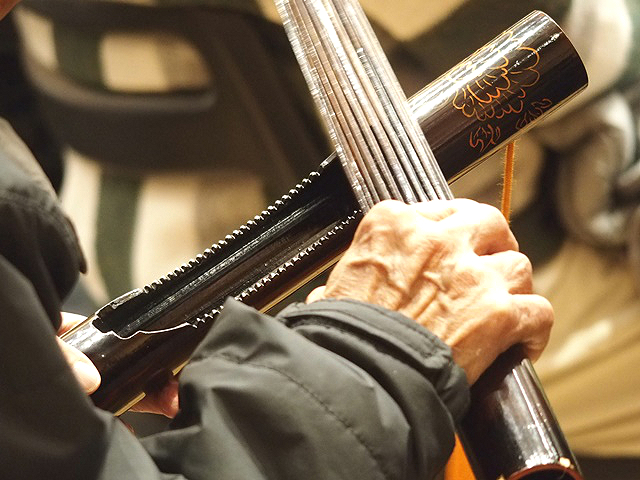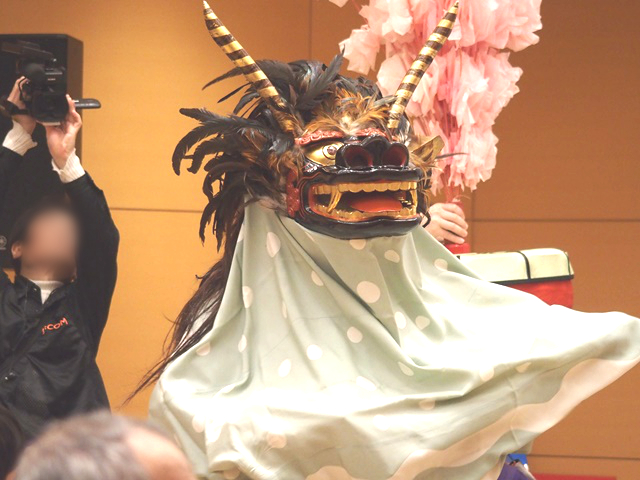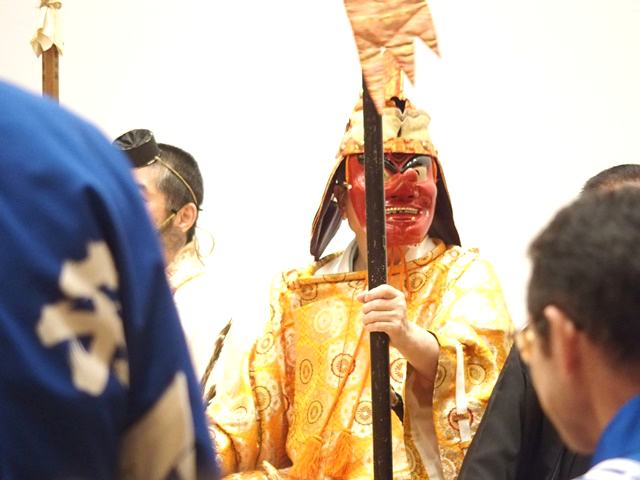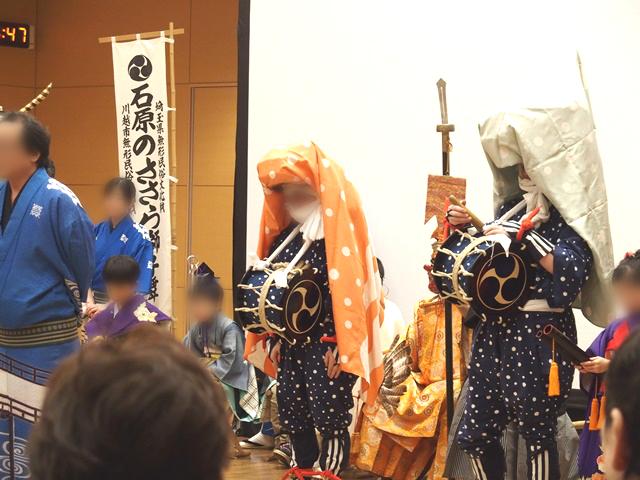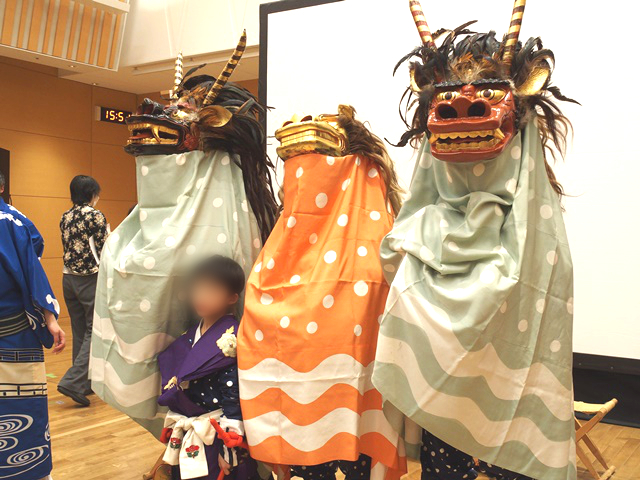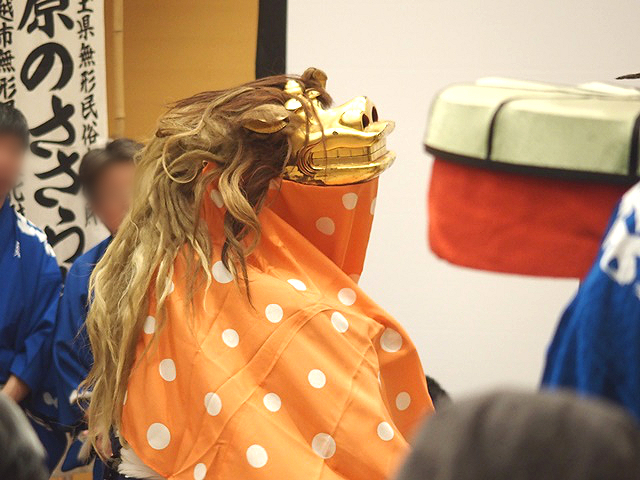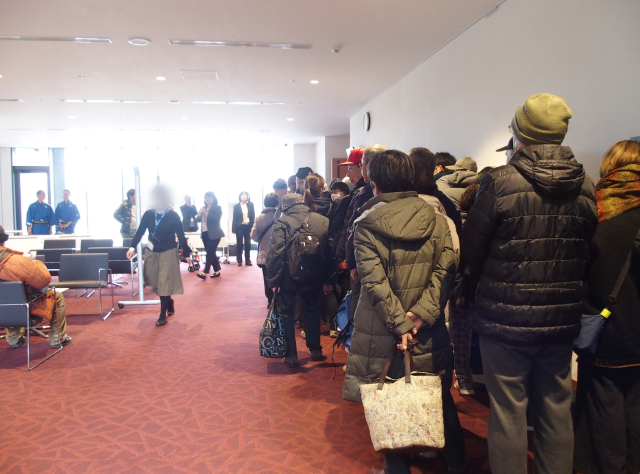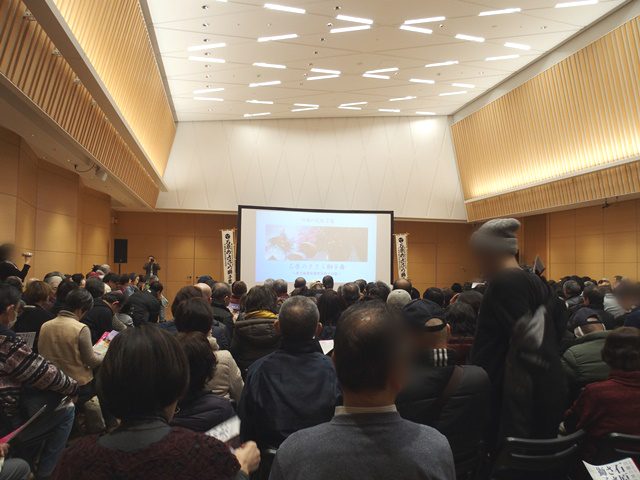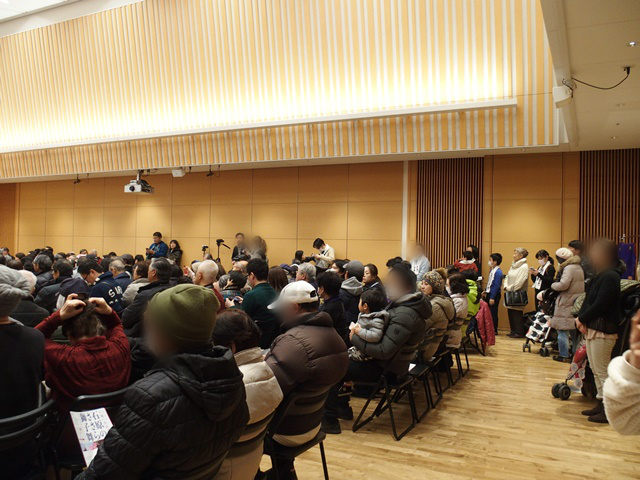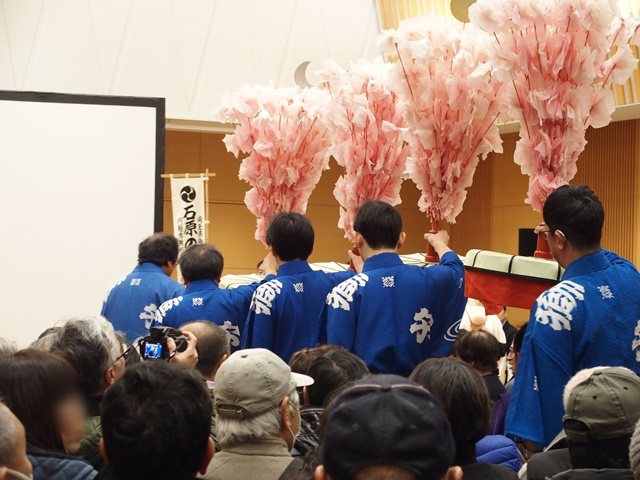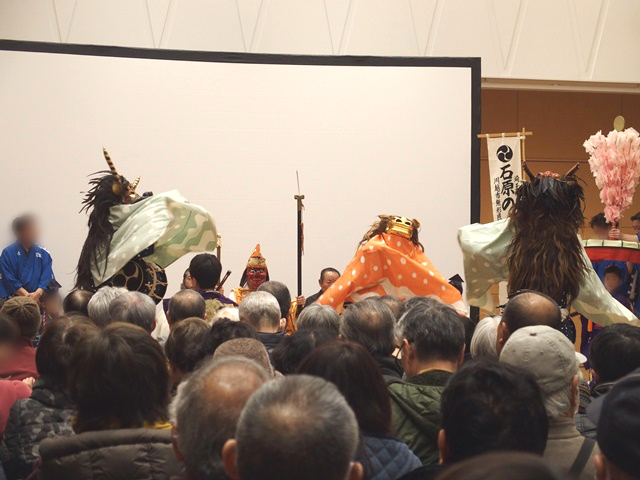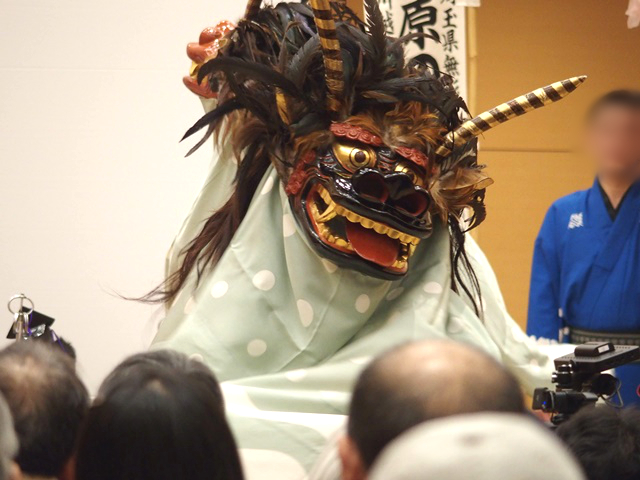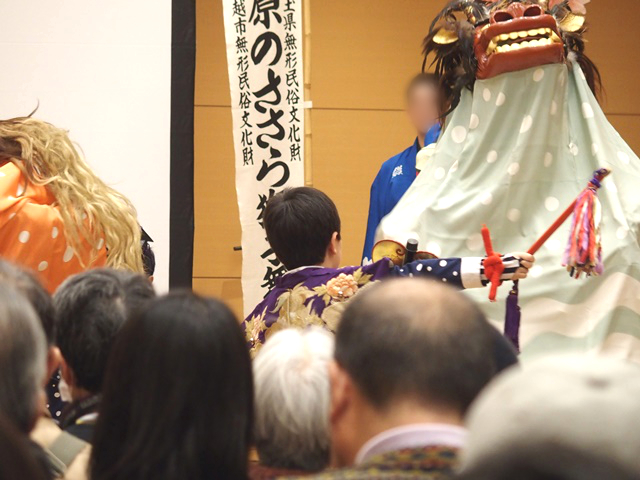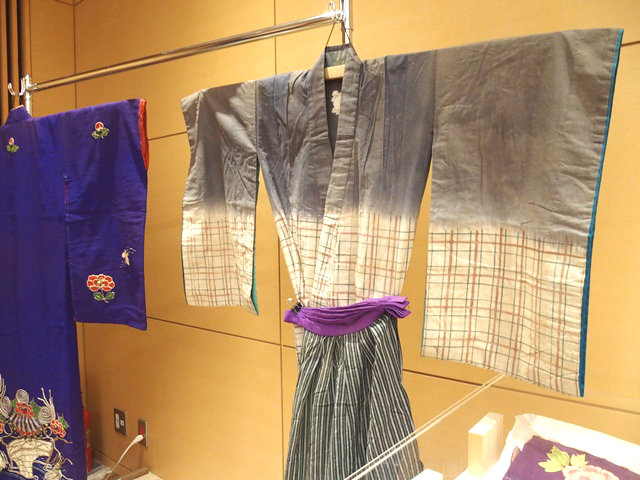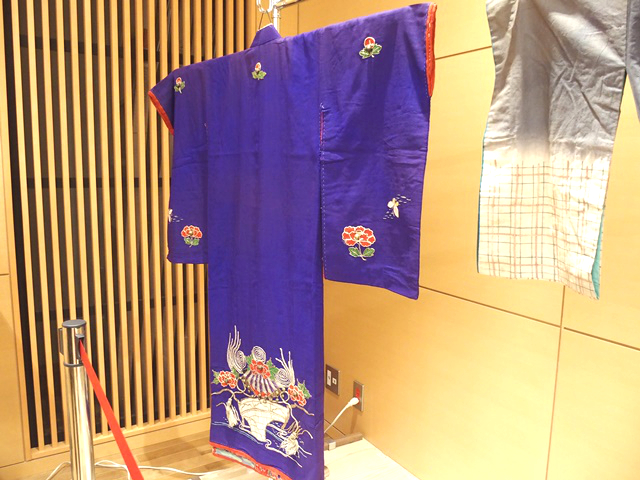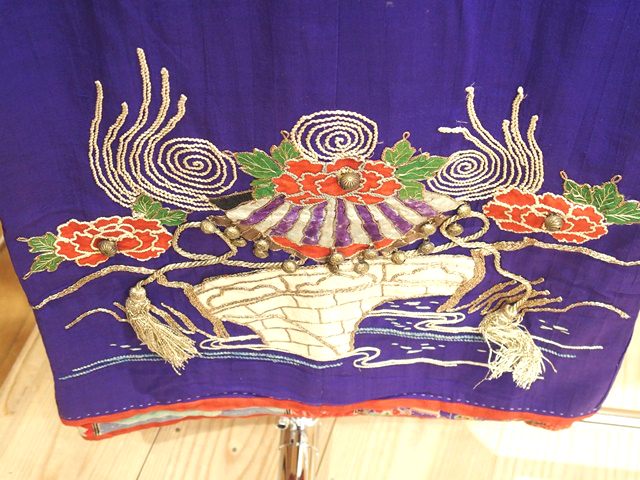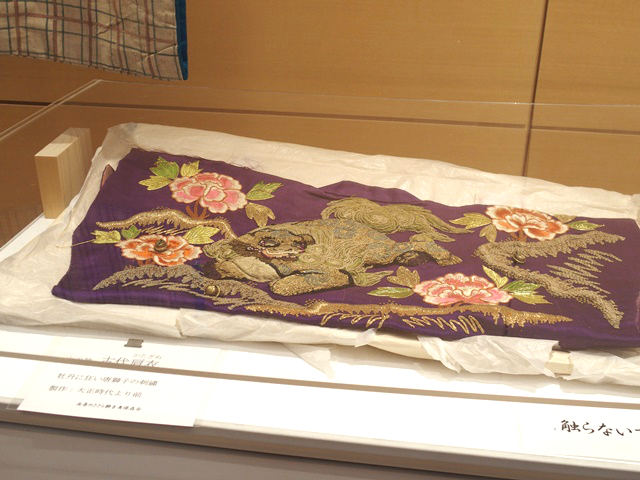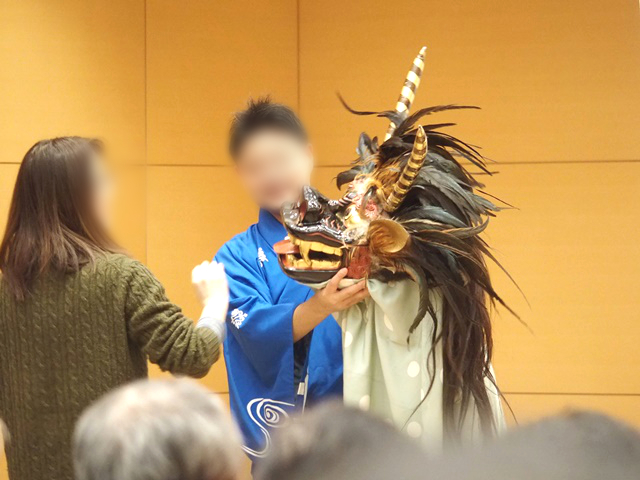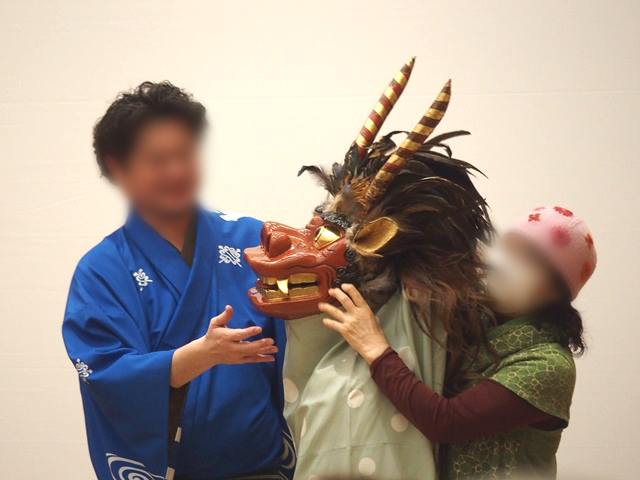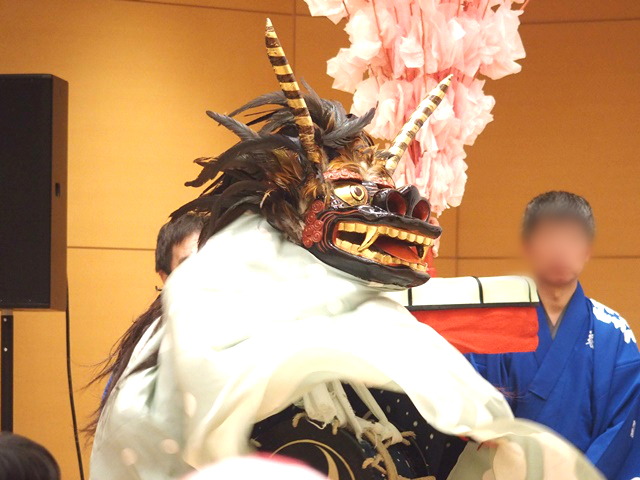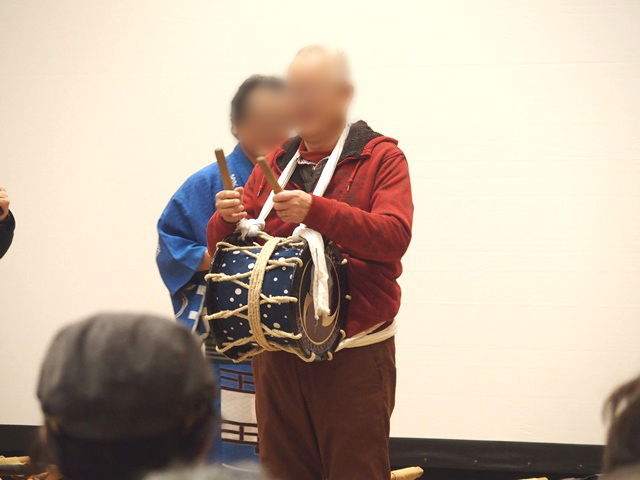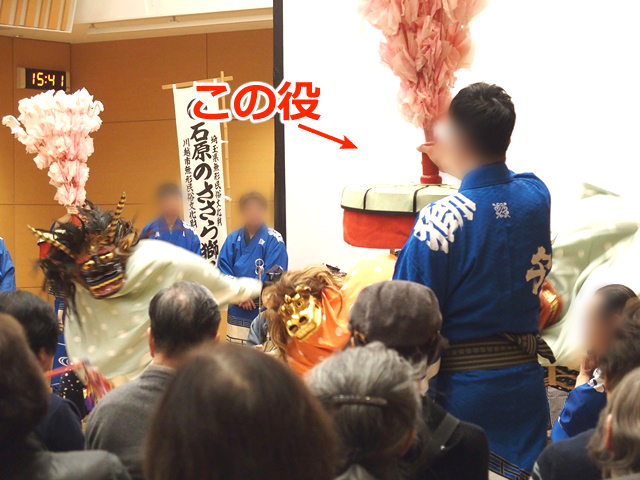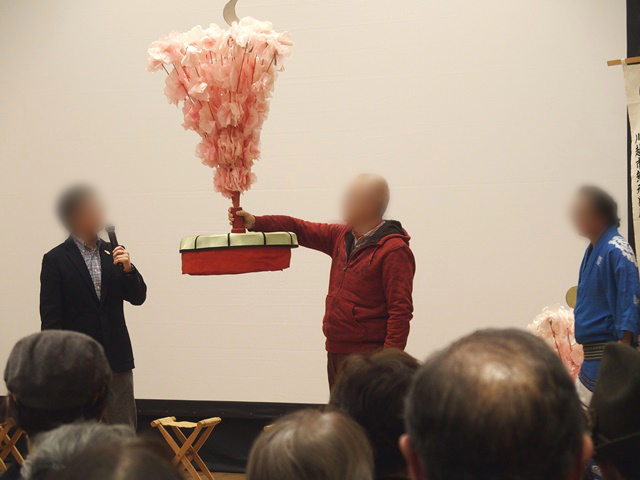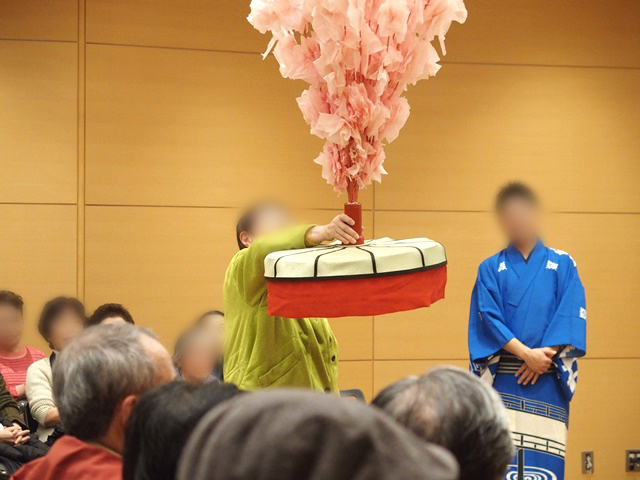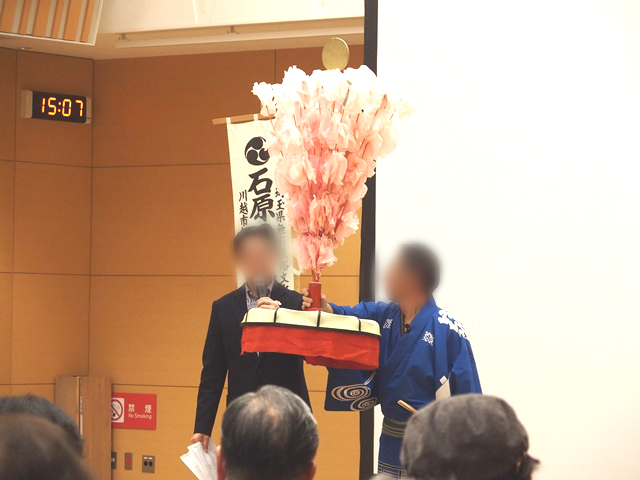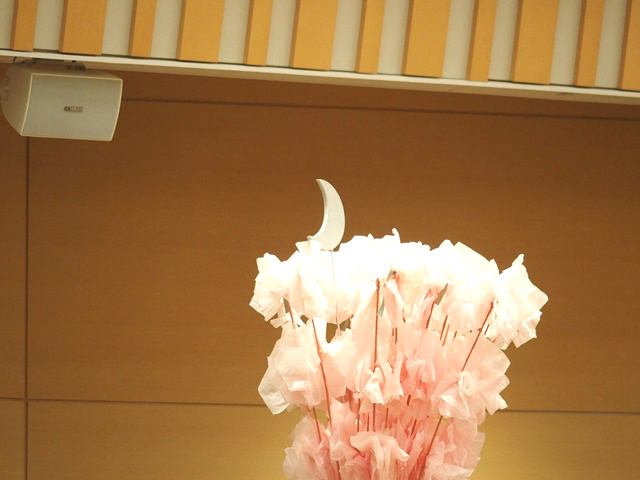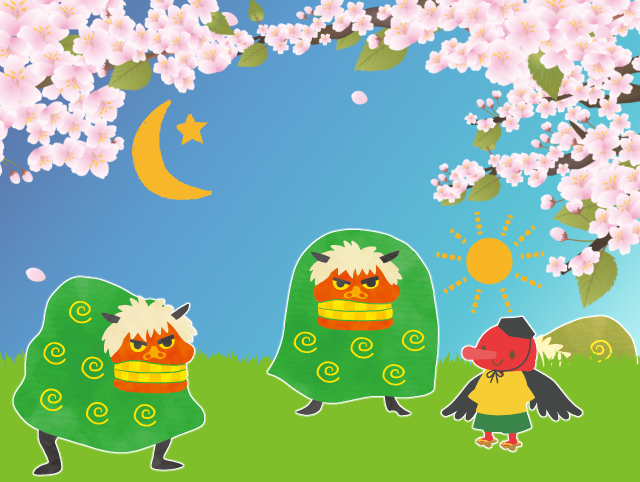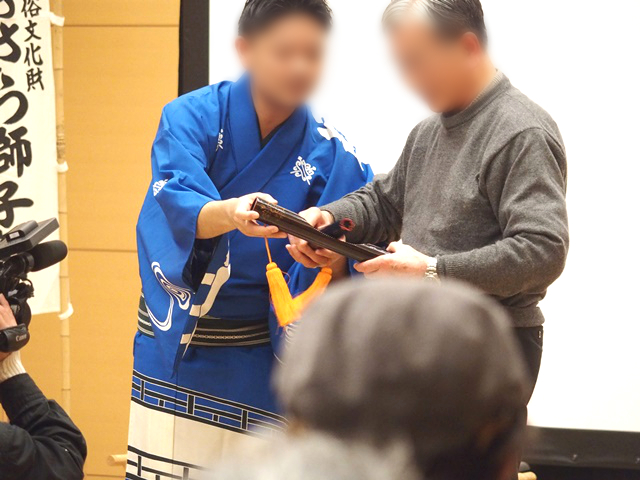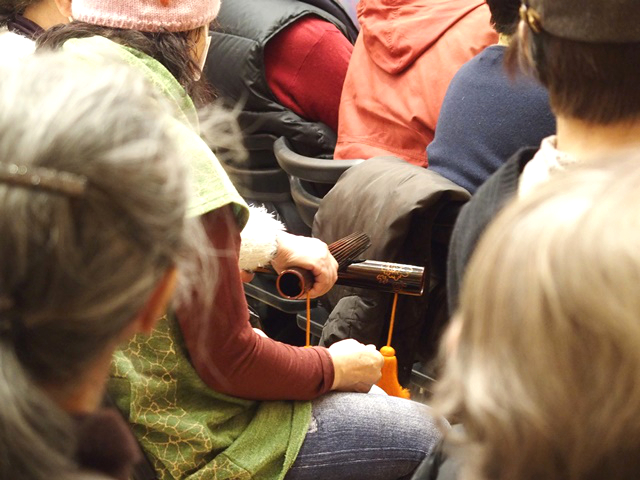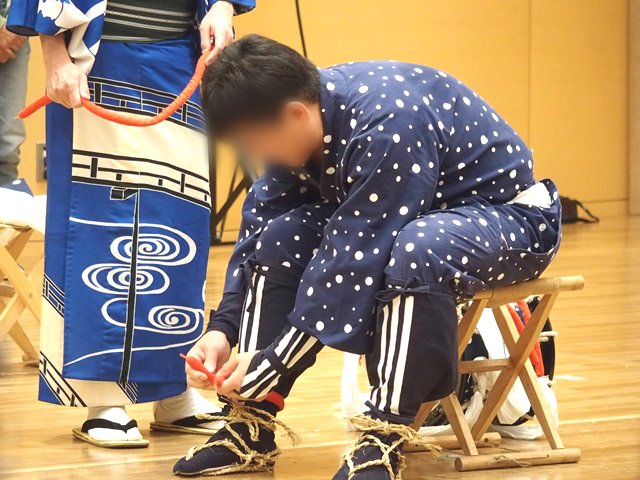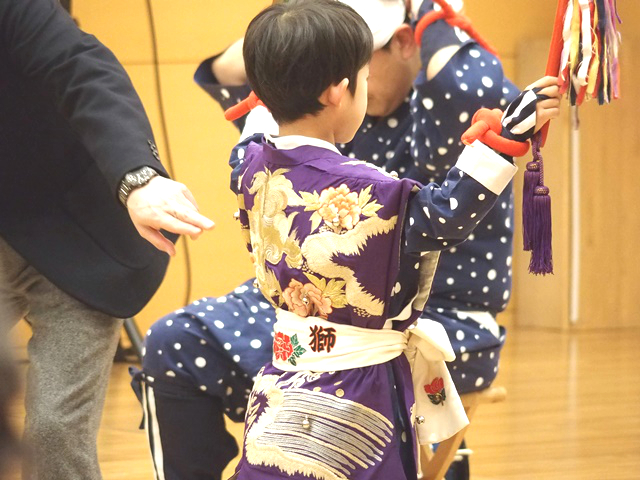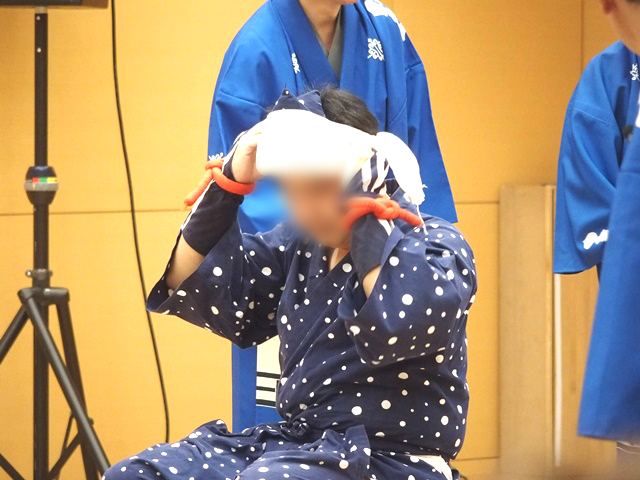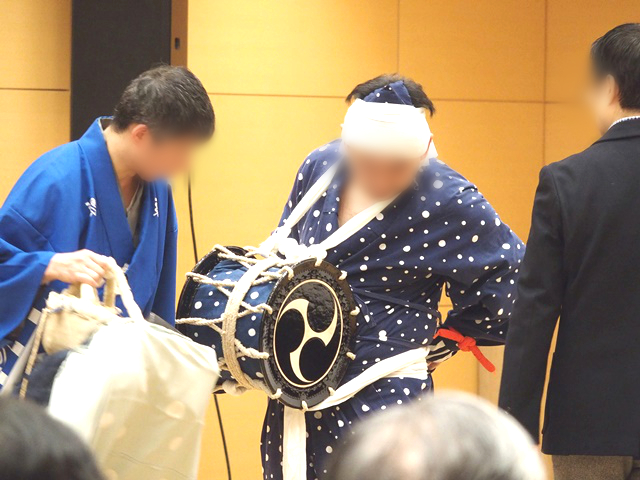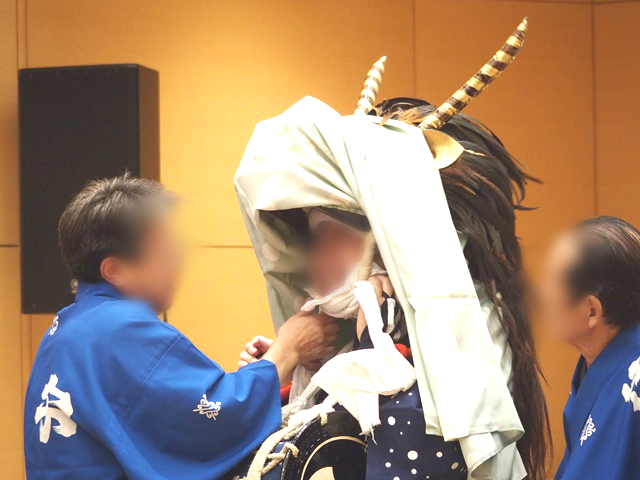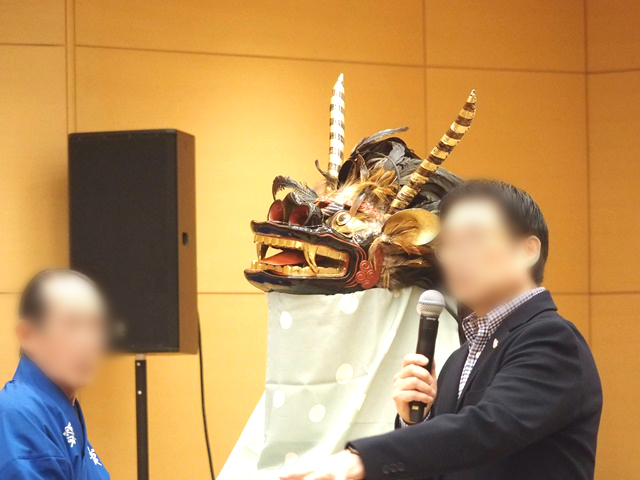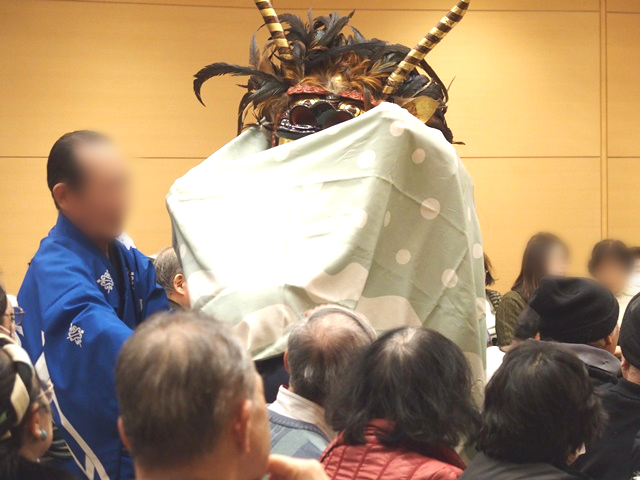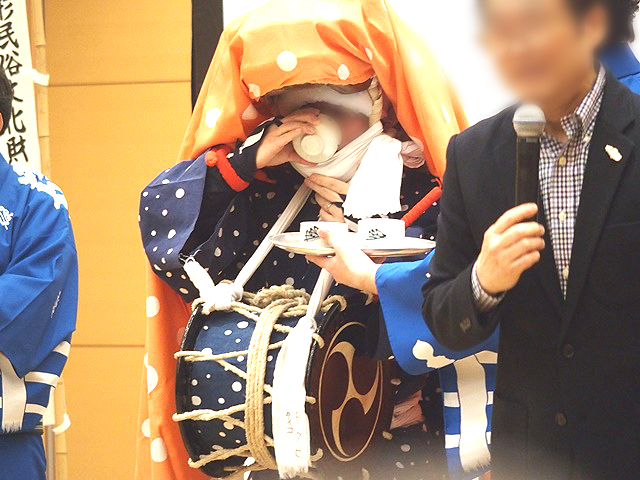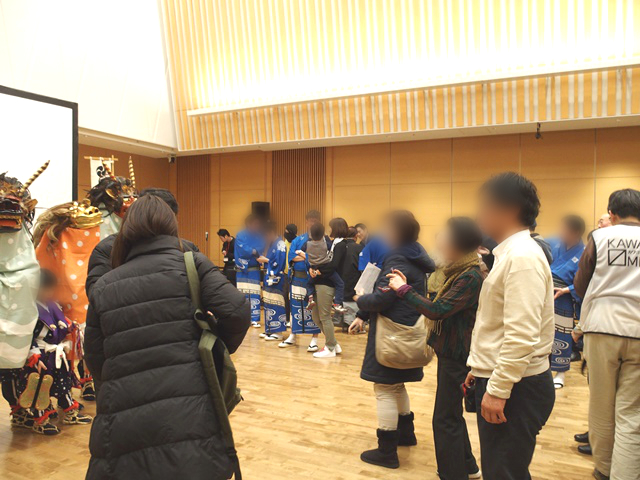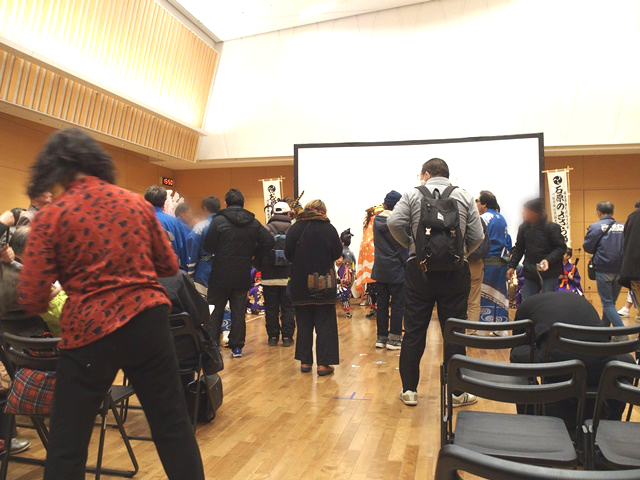"Ishiwara no Sasara Shishimai" is one of Kawagoe's folk performing arts, where three lions dance powerfully to the sound of the ancient Japanese instrument called "Sasara".
I participated in the lecture.
Japanese
-

-
川越の民俗芸能「石原のささら獅子舞」とは?次代に伝えたい春の伝統
続きを見る
目次

運営者一押しのランチ店リストはこちら >>
What is Kawagoe's folk art “Ishiwara no Sasara Shishimai?”
“Ishiwara/Ishihara no Sasara Shishimai” is held at Kannonji Temple in Ishiwara machi, Kawagoe City.
Its cultural value is very high, and it has been designated as an intangible folk cultural asset in Saitama Prefecture. It is also highly evaluated on the “Kawagoe Rekishi Shinsho 3. Kawagoe’s Rekishi Zuihitsu” (Ichiro Okamura Kawagoe Local History Study Group) is as follows
川越の年中行事のなかで伝統が古いばかりでなく、民俗芸能として非常に優秀なものに石原のささら獅子舞がある。これはたしかに鼻を高くして誇るだけの値うちがあろう。
(Among the Kawagoe's annual events, Ishiwara no Sasara Shishimai is one of the most excellent events for folk performing arts. This is certainly worthy of its following.)
引用:『川越歴史新書 3.川越歴史随筆』6. 石原のささら獅子舞 冒頭
(Quote: "Kawagoe Rekishi Shinsho 3. Kawagoe’s Rekishi Shinsho" 6. Ishiwara no Sasara Shishimai)
There are two types of Sasara Shishimai festivals, the “Hon Matsuril” held on the 3rd Saturday and Sunday of every April and the “In Matsuri” held only on Sundays. They are held alternately every other year.
2019 was the year of the In Matsuri Festival.
"Sasara" is a Japanese traditional instrument
“Sasara” in “Ishiwara no Sasara Shishimai” is the name of an instrument that has been passed down in Japan since ancient times.
A lacquered bamboo divided into 36 ridges and is rubbed with a stick called a“Sasarako” with twelve indentations to make a sound.
Its tone is close to the Spanish percussion instrument Giro.
[Reference] Guillo
Ishiwara no Sasara Saiko Dance consists of 12 scenes
The dance piece is composed of 12 scenes based on 12 months and 12 chapters. Each scene has a theme and is characterized by a series of stories throughout.
The aspect of dance changes with the development of the story, so you will never get tired of watching it.
The highlights are the 9th "MeJishi Gakushi" to the 10th "MeJishi Gakushi".
Two male lions, who had been performing elegant dances until then, began a fierce battle over the female lions that had disappeared.
After repeated mischief several times over, the mountain god appears. The lions are reconciled by the mountain god, and make up for the meaninglessness conflict.
Then, a female lion who had hidden the shadows appears and joins the great circle with 3 lions.
History of Ishiwara no Sasara Shishimai
The origin of Ishiwara no Sasara Shishimai was performed to pray for fortune and peace at the Kannon Festival held in March 1603 (Keicho 12).
At that time, it was said that they were performing in Kawagoe Castle at festivals.
However, in 1634 (11 years Kanei), after the year when the castle lord Tadakatsu Sakai did Kunigae to Wakasa Obama Castle (Kunigae / changing of territory, meaning moving out), the Sasara Shishimai is no longer seen in Ishiwara Town.
This is because when Tadakatsu, who loved Shishimai, moved to Wakasa Obama Castle, he took two male and female Lions and dancers of Sasara Shishimai together with him.
Over the next 75 years, the history of Ishiwara no Sasara Shishimai stopped completely.
However, in 1709 (6th year of Hoei), it was revived after the lion head was dedicated to Takazawa's Inoue family. At that time, the Shishimai procession was more than 50 people.
References: "Kawagoe City Children's Folk Performing Arts Tour Manual" Kawagoe City Board of Education
Derivation from Ishiwara no Sasara Shishimai to Unpinjishi (Ohama City, Fukui Prefecture)
In Obama City, Fukui Prefecture, where Sakai Tadakatsu, the lord of Kawagoe Castle had moved, there is a Shishimai culture called Unpinjishi. This was spread to the people of Obama (at that time Wakasa) when Tadakatsu changed the territory.
The performers that Tadakatsu brought from Kawagoe were called “Kanto-gumi” and were given the status of associates. They were allowed to dance mainly at celebrations held in the castle, and at the Gion Festival they were also dedicated to the Hiromine Shrine.
At present, Unpinjishi is performing at the Obama Shrine annual festival “Oshiro Matsuri” (May 2nd and 3rd) that enshrines Tadakatsu.
References: “Mekara Uroko no Minzokugaku“ edited by Hiroyuki Hashimoto, Wakasa Obama Tourism Association Official Website
Great excitement! Ishiwara no Sasara Shishimai Performance Lecture!
On February 11, 2019, a lecture-performance of Ishiwara no Sasara Shishimai was held at the public facility "Westa Kawagoe" in Kawagoe City.
Stated before opening, There was already a long line 30 minutes before the performance.
The pre-sale ticket for the performance was sold around December of the previous year, but it seems that it was very popular and sold out in no àtime.
I went to the venue one hour before the performance and purchased a ticket on the day.
The venue is full.
There were many packed standing room audiences.
The performance started with a demonstration of Ishiwara no Sasara Shishimai
After the explanation video of Sasara Shishimai, the members of the Sasara Shishimai Preservation society entered with the sound of the shellfish. The inside of the venue changed in an instant.
Ishiwara no Sasara Shishimai's performance started immediately. The audience was very busy taking videos and photos and taking out notepads.
The energy & tension builds in the venue and electrifies the crowd at the stretch for a powerful dance!
A boy who plays Tengu also appears. Customers are delighted by the cute but crisp movement.
Items related to Ishiwara no Sasara Shishimai are also displayed in the venue
Small sleeve costumes were displayed at the back of the venue. Both are quite precious, and it seems that Kosode (probably Moka cotton) and Igabakama(twin stripes) in the above photo were produced in the Meiji 20s.
This is a small sleeve worn by a girl from Sasarakko.
It is characterized by dimensional embroidery and is a very expensive gem.
Ancient shoulder silk with powerful embroidery that can never be made again. Mountain god costume. The theme of the embroidery is “Karajishi crazy about peony”.
Visitors can also experience Ishiwara no Sasara Shishimai!
The main event is starting.
Lion head
Several women raised their hands to the presenter's call, “Guests who want to wear a lion head, please raise your hand”.
The woman who was given the lion head was very surprised by its weight.
A feeling of heavyweight that hangs on the hands. The man from the society was holding the lion head firmly, but the woman was a little staggered by the weight.
A lion head never swings with the neck alone
The presenter asks for an impression from the woman, and she spoke with excitement, saying, "Do you mean shake like this? My neck feels like it's going to break!” While the audience laughed at the reaction of the women, they were curious about their own impressions.
In addition, when a woman said, "I have to use my waist (I can't shake my head, I can't do it) ." the audience said, “Wow…”.
According to the explanation of the preservation society, the lion head cannot be shaken only by the neck, and it is necessary to use the whole body.
Also, the great horn attached to the male lion seems to show off his strength, and there are lions with longer horns in other regions.
By the way, since this lion head was donated 310 years ago, it seems that it has remained intact without changing its shape.
Taiko Drum
Next, we will move on to the taiko experience time.
At the time of the lion head, only women raised their hands, but this time men wanted a challenge. There was a simple lecture on how to strike the drum, and he was able to play it very well.
However, a little controversy started from the man's remarks here.
“It's hard to keep playing the drums. The bachi (drumsticks) are so heavy that I can only play the role of holding a tree at the bottom (holding an umbrella).”
The members of the Sasara Shishimai Preservation Society couldn’t help but say. “Okay, then, actually hold it!”
The venue was filled with laughter, along with the voice of the man, “Really?! (laughs)!”.
Hanagasa
A man who holds an umbrella as told will find within a few seconds, his arms started trembling.
Actually, this role is a lot of hard work. It's even hard for a member of the conservation society to hold an umbrella for a long time.
For this reason, during the Sasara Shishima, they actually perform while changing people who hold the umbrella.
After this, women were also trying to hold umbrellas, but it seemed quite painful. Everyone gave up immediately.
Hanagasa, which used to be a path for newcomers in the past
By the way, this heavy Hanagasa was worn on the head by a “Sasarakko”
Originally, Shishimai was the pleasure of patrons (such as merchant owners), and in Ishiwaramachi, the patron danced, and the “lady” role was Sasarakko.
However, around the late Edo period, the idea of “Putting something heavy on the head of an important lady!” Hanagasa has changed from “What you wear on your head” to “What you have in your hand,” and has become one of the roles of newcomers.
Now, Ishiwara no Sasara Shishimai dances up to 25 minutes, but in the past, it was said they would be dancing for about an hour.
In other words, the newcomer had a heavy Hanagasa for an hour.
Just imagining that makes my arms go numb…
Hanagasa decoration meaning
Hanagasa in Ishiwara no Shishimai is impressive with the cherry blossoms of Yoshino Sakura. In fact, there are two types of Hanagasa, each with a sun (sun ring) and moon (moon ring) objects on top.
Strictly speaking, its meaning would be very long, but in short, by raising these two types of Hanagasa, “the lions are competing in the prairie where cherry blossoms bloom under the light of the sun and moon.
Sasara
It looks like everyone can do it, but it's surprisingly difficult. In order to play properly, there are tips on how to hold it.
Some Sasara were distributed to the audience by saying "Let's actually hold Sasara in hand".
The audience tried to make sounds with Sasara.
"Is this it?"
“Something is not right?”
Some people are confused by the unexpected difficulty.
Introduction to changing clothes before the performance
This is before the performance of Sasara Shishimai, which is usually not able to see.
The thing that men wrap around their feet is called "Pinkoro", which has a role as an amulet.
A boy about 8 years old wearing a mountain god costume. Karajishi Peony embroidery shines on the back.
This costume is very heavy, and until about 50 years ago, 11-12 years old were wearing it.
However, in response to the presenter’s question “Is the costume heavy?” The boy answered “it is light” with an easy look. The venue was full of laughter.
The lion head is worn by three people including the principal.
Equipped with a drum before wearing a Shishimai.
The lion head is firmly fixed so that it does not shift during the performance. The jaws hurt the next day because the string is tightened so that the mouth cannot be opened.
The closing of Shishi. It looked very difficult, but as expected, the installation was completed in about 10 minutes with good coordination.
"Let's go into the Mizuhiki of Shishi".
Shishi that has Mizuhiki on will be completely invisible. The audience actually entered Mizuhiki and were surprised at the poor visibility.
After changing clothes, cleanse your body with sacred sake. Now that the preparations are complete, Ishiwara no Sasara Shishimai has finally begun.
Post-performance photography
After the lecture performance, it’s time for some photos.
The audience gathers all at once to take a picture of Shishi, which is moving fast and difficult to shoot during the performance.
Even after the closing, the venue was very lively.
Where can I see Ishiwara no Sasara Shishimai?
Ishiwara no Sasara Shishimai is held at Kannonji Temple on the third Saturday and Sunday of April. In 2019, it was held on April 14 (Sun).
The flow of the festival is as follows.
- Dedication to the at Kannonji (Ichi-niwa)
* Ichi-niwa = one of the performance consisting of 12 scenes - Performing around town
- Performing for the Inoue family (Ichi-niwa)
→ Inoue family: A house that dedicated the Shishimai and contributed to the revival of Sasara Shishimai - Return to Kannonji and perform Hanniwa (Meaning “the other half of performance will be left for next year”.)
- Elder finished with “Senshuraku”
Access to Kannonji
- 7 minutes on foot from Ichibangai Kurashizukunomachi
- From Seibu Shinjuku Line “Honkawagoe Station”, take the Tobu Bus to “Wakaba Station” and get off at “Takazawabashi” 2 minutes on foot (total 9 minutes)
- Take JR Tobu Tojo Line to “Kawagoe Station” and get on the Tobu Bus “Wakaba Station.” Get off at “Takazawabashi” 2 minutes on foot (total 14 minutes.)


